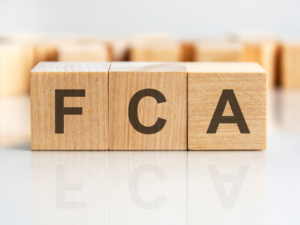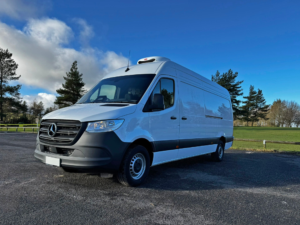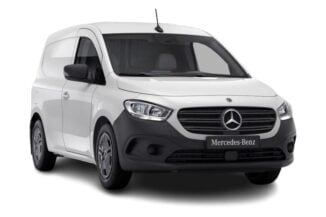If you are new to van leasing and want a clear understanding of how it works, you’re in the right place. This comprehensive guide demystifies business van leasing in the UK, highlights its advantages, and explains how it differs from other vehicle finance options. Whether you are a sole trader, an established SME, or a growing organisation, this resource will help you navigate the process with confidence and ensure you choose the best leasing solution for your operational needs.
What is van leasing?
Van leasing—often referred to as van contract hire—is one of the most cost-effective and straightforward methods for businesses to access brand-new commercial vehicles. Rather than purchasing a van outright, leasing enables companies to drive the latest models with predictable monthly costs, minimal upfront expenditure, and none of the financial risk associated with vehicle depreciation.
Unlike traditional finance agreements that ultimately lead to ownership, van leasing is a long-term rental arrangement. You make fixed monthly payments for the duration of the contract, then return the vehicle at the end of the term. Because you’re only paying for the vehicle’s predicted depreciation—not its full value—the monthly rentals are usually significantly lower than other forms of finance.
This structure enables businesses to enjoy reliable, modern vans without tying up large amounts of capital or worrying about selling the vehicle later.
How does van leasing work?
A typical business van lease in the UK spans two to five years, with two-year terms considered short-term and four- to five-year terms considered long-term.
During the application process, you must provide an annual mileage estimate, which forms part of the contractual agreement. For example:
- 10,000 miles per year
- 3-year contract
- Total allowance = 30,000 miles
Exceeding this mileage results in an excess mileage charge, which is clearly outlined in your agreement.
You will also select an initial rental (commonly referred to as a deposit), usually equivalent to 3, 6, 9, or 12 monthly rentals. For example:
- Monthly rental: £250
- Initial rental: 6 x £250 = £1,500
- Payment structure: £1,500 in month one, then £250 per month thereafter
Some businesses choose a fixed figure instead—for instance, a £3,000 initial payment.
The van leasing process in 10 simple steps
Leasing, whether it’s a car, van, or pickup truck, is a pretty simple and straightforward process.
1. Choose your vehicle
Whether you have a specific model in mind or need guidance, leasing providers typically have expert consultants who can recommend the best van based on payload, usage, industry, budget, and specification.
2. Request a quote
You’ll outline key requirements such as contract length, annual mileage, and deposit level. You can also request quotes for both maintained (which includes servicing and tyres) and non-maintained options.
- Do I need maintenance if I have a manufacturer’s warranty cover?
If you buy or lease a brand-new van, it will usually come with a manufacturer’s warranty. The exact warranty can vary depending on the manufacturer and sometimes even the specific model. Each warranty covers different components and has its own terms and conditions, so it’s important to check what is included — and what you must do to keep the warranty valid.
- Not sure what the difference is between a maintained agreement and a manufacturer’s warranty?
Understanding these two types of cover is essential when choosing the right lease for your business. A maintained agreement looks after your vehicle’s routine servicing, tyres, MOTs and wear-and-tear repairs, while a manufacturer’s warranty covers faults caused by defects in materials or workmanship. If you’d like a clear, detailed breakdown of how they compare — and what each one includes — you can read our blog titled: ‘Maintenance vs Warranty: What’s the difference?’.
3. Accept the leasing proposal
When you’re happy with the terms, you can accept the quotation—often electronically.
4. Place the order
You’ll receive a customer order form to review, sign, and return to secure the vehicle.
5. Submit your finance application
The leasing provider will apply for finance on your behalf once your order form is received.
6. Receive finance approval
If approved, you’ll receive finance documents for signature. If further details are required, the funder may request additional information.
7. Vehicle delivery arranged
Your leasing provider schedules delivery. Ensure your insurance is active on the delivery date.
8. Initial rental collected
The initial rental is usually taken from your bank account within 7–14 days of delivery.
9. Monthly rentals begin
Your fixed monthly payments will be collected by Direct Debit for the duration of your agreement.
10. Return the vehicle
At the end of the term, the van is inspected and collected. Many leasing companies, including Commercial Vehicle Contracts, proactively contact you around six months before the end to help arrange your next vehicle in good time.

How much does it cost to lease a van?
There is no universal monthly rate because van leasing costs depend on several key factors:
- Vehicle type: Larger or specialist vehicles—such as Luton vans or curtainside vans—cost more than small vans.
- Manufacturer: Brands like Renault, Citroën or Peugeot are generally more budget-friendly than premium brands such as Mercedes or VW vans.
- Contract structure:
- Longer terms = lower monthly rentals
- Higher mileage = higher monthly rentals
- Lower deposits = higher monthly rentals
Example:
A Peugeot Partner van leased in 2025 on a 36-month agreement with 12 months’ initial rental and 5,000 miles per year may cost approximately £177 per month.
Pros and cons of leasing a van

Advantages of van leasing
- Predictable, affordable monthly costs
- Lower upfront investment compared with purchasing
- Access to the latest models and technology
- Reduced administrative burden—your leasing provider manages procurement
- No risk of depreciation
- VAT reclaimable on rentals for most business users (depending on usage and lease type)
Disadvantages of van leasing
- Vehicles must be kept in good condition; damage outside fair wear and tear may be chargeable
- Exceeding mileage limits incurs additional fees
- Ending contracts early may involve termination charges
- Without a maintenance package, the business is responsible for servicing and upkeep
Business van leasing options
To help you select the most appropriate funding method, here are the main types of commercial van leasing available:
Business Contract Hire (BCH)
Business Contract Hire is the most widely used van leasing option due to its simplicity, predictability, and convenience. Under this agreement:
- You pay a fixed monthly rental for the duration of the lease, which typically ranges from 24 to 60 months.
- The lease includes a pre-agreed mileage allowance. Staying within this limit ensures no additional charges, while exceeding it will incur an excess mileage fee.
- At the end of the lease term, the vehicle is returned to the leasing company, eliminating concerns about depreciation or the hassle of selling.
Additional benefits of BCH include:
- Road tax is included for the full lease period, simplifying administration and budgeting.
- VAT on lease rentals—and on maintenance if you choose a maintained lease—can usually be reclaimed, helping to improve cash flow.
- Optional maintenance packages can cover servicing, tyres, and breakdown assistance, giving peace of mind and reducing operational disruption.
BCH is particularly well-suited for businesses seeking predictable monthly costs, minimal upfront payments, and access to the latest vehicle models without the responsibilities of ownership.
Finance Lease
Finance Lease is a business-only product that allows companies to use vehicles while transferring certain ownership risks and potential rewards to the business. Unlike Contract Hire, the vehicle is not returned automatically at the end of the term. Key features include:
- Monthly rentals are calculated as a percentage of the vehicle’s capital cost, often making them lower than standard Contract Hire payments.
- Road tax is included for the first year of the lease only.
- VAT on rentals and maintenance can be reclaimed if the lease is structured as a maintained finance lease.
- A balloon payment is scheduled at the end of the lease term, representing the residual value of the van. You are responsible for selling the vehicle to settle this payment.
- If the sale price exceeds the balloon payment, your business retains the profit.
- If the sale price falls short, your business covers the shortfall.
Finance Lease offers flexibility and potential financial advantage for businesses confident in managing the resale of the vehicle. It is ideal for companies that wish to retain some control over the asset and potentially benefit from residual value gains.
What is the difference between Contract Hire and Finance Lease?
Business van purchase options
Business Contract Purchase (BCP)
Business Contract Purchase combines the benefits of leasing with the option to eventually own the vehicle. It is particularly suitable for businesses that want lower monthly payments but plan to keep the van long-term.
Key features:
- Fixed monthly payments over an agreed term.
- At the end of the contract, you can pay a balloon payment to take full ownership.
- Road tax and maintenance are optional, depending on the agreement.
- VAT on rentals is recoverable on the service element; VAT on the balloon payment is usually payable upfront.
Advantages:
- Lower monthly payments than outright purchase or Hire Purchase due to the deferred balloon.
- Flexibility to return or purchase at the end of the contract.
Ideal for:
Businesses that want predictable costs during the contract, but also the option to own the van after the term ends.
Business Lease Purchase (BLP)
Business Lease Purchase is designed for companies without VAT registration or those seeking to minimise upfront capital expenditure. It is a finance-focused option rather than a maintenance-inclusive lease.
Key features:
- Monthly rentals over the contract term.
- A final lump-sum payment at the end secures ownership of the vehicle.
- Maintenance is not included.
- Typically, lower upfront costs than purchasing outright.
Advantages:
- Allows businesses without VAT registration to manage cash flow effectively.
- Provides a clear path to full ownership at the end of the term.
Ideal for:
Businesses seeking low initial outlay and a straightforward route to eventual vehicle ownership without the complexity of maintenance obligations.
Learn more about how VAT can be reclaimed on business vehicle leases and what rules apply to your company.
Summary table of van financing options
| Option | Ownership | Maintenance | VAT Recoverable | Risk of Depreciation | Monthly Payments | End of Term |
|---|---|---|---|---|---|---|
| BCH | No | Optional | Yes | None | Fixed | Return vehicle |
| FL | No (business bears residual value risk) | Optional | Yes | Yes | Lower than BCH | Sell the vehicle to settle the balloon |
| BCP | Optional | Optional | Partially | Yes | Lower than HP | Pay balloon to own or return |
| BLP | Yes | No | N/A | Yes | Moderate | Pay the final lump sum to own |
Your dedicated account manager will stay in touch to ensure your vehicle is performing as expected and to offer assistance with any queries or future requirements.
You will also receive access to our 24/7 customer portal, where you can:
- Manage and review vehicle information
- Contact your account manager
- Request new quotations
- Access support resources
From small, medium, or large panel vans to pickups, dropsides, tippers, or bespoke van conversions, we offer a comprehensive range of makes and models — including electric and hybrid options — to meet the diverse needs of your business.
With an impressive average score of 4.9 stars on Trustpilot, we believe our reviews reflect our commitment to customer service. Our knowledgeable team provides expert advice and guidance to help you choose the perfect van and finance product for your needs. As proud members of both the British Vehicle Rental and Leasing Association (BVRLA) and the Financial Conduct Authority (FCA), you can have complete confidence that you’re dealing with a trusted, compliant, and professional company.
Discover our newest business contract hire deals and special offers, and find the perfect vehicle and finance package to suit your business needs
Contact our expert team for friendly, no-obligation advice.
☎️ 01424 863 456
🟢 Drop us a message
🟢 Request your quick quote online
We’ll help you design the perfect vehicle specification and financing solution for your operational requirements.










